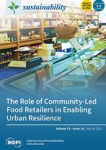| Titre : | Sustainability, vol. 13, n. 14 - July 2021 |
| Type de document : | Bulletin : Revue Electronique |
| Paru le : | 15/07/2021 |
| Année de publication : | 2021 |
| Langues : | Anglais |
| Cote : | En ligne |
| URL / DOI : | https://www.mdpi.com/2071-1050/13/14 |
Dépouillements
Ajouter le résultat dans votre panier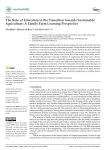
Article
This paper deals with the analysis of decision-making processes at the family-farm level with reference to the transition towards sustainable agriculture. Despite literature that has underlined the relevance of education in strategic decision ma[...]
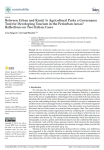
Article
The new demand for rurality raises new issues: it is no longer a question of sustaining a traditional agricultural model based exclusively on productivity and profit maximisation, but rather agriculture strongly oriented towards the production o[...]
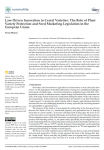
Article
The aim of this paper is to investigate the role of EU legislation in shaping innovation in cereal varieties. The research focuses on two fields of law and their relationship, i.e., intellectual property and agricultural law. More specifically, [...]
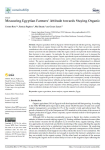
Article
Organic agriculture (OA) in Egypt is well-developed and still fast growing. Improving the relation between organic farmers and the other agents in the chain can provide a positive contribution to the whole organic chain competitiveness. One poss[...]
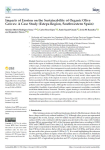
Article
Spain has more than 2.5 M ha of olive groves, with 60% of this area (i.e., 1.5 M ha) concentrated in the region of Andalusia (Southern Spain). Assuming the socio-ecological characteristics of these crops, of which their contribution to ecosystem[...]
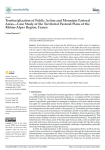
Article
Territorialization aims at improving the effectiveness of public action by adapting to local contexts and including a wide diversity of actors. In the 2000s, the French local authorities, with the support of the European Agricultural Fund for Ru[...]
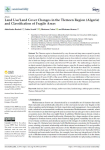
Article
The Tlemcen region is characterized by very diverse and steep areas exposed to gravity hazards, especially in high and medium mountain areas. Tlemcen National Park was chosen for this study, the main objective of which is to map fragile areas in[...]
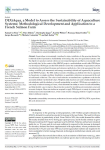
Article
S. Le Féon ;
T. Dubois ;
C. Jaeger ;
A. Wilfart ;
N. Akkal-Corfini ;
J. Bacenetti ;
M. Costantini ;
J. Aubin
|
Aquaculture is increasingly considered a major contributor to the growing demand for worldwide seafood production. Sustainability is becoming a key issue for aquaculture systems, with the objective to produce seafood with lower environmental imp[...]

Article
D. Hoehn ;
M. Margallo ;
J. Laso ;
I. Ruiz-Salmon ;
A. Fernandez-Rios ;
C. Campos ;
I. Vázquez-Rowe ;
R. Aldaco ;
P. Quinteiro
|
The availability of freshwater is one of the biggest limitations and challenges of food production, as freshwater is an increasingly scarce and overexploited resource in many parts of the world. Therefore, the concept of water footprint (WF) has[...]
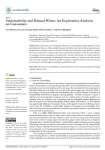
Article
Wine production and consumption in Italy have a long tradition strongly linked to conventional products. Because of these market dynamics, the Italian wine industry has strongly increased the production of organic wines, as well as that of biody[...]
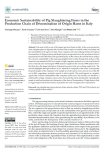
Article
G. Bonazzi ;
P. Camanzi ;
G. Ferri ;
E. Manghi ;
M. Iotti
|
Pork meat in Italy is one of the largest agri-food chains in Italy. In the swine production chain, slaughter plays an important role, because it has an impact on animal welfare, food safety and the sustainability of the agri-food chain. These co[...]
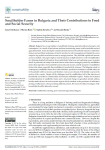
Article
L. Fredriksson ;
M. Rizov ;
S. Davidova ;
A. Bailey
|
Bulgaria has a long tradition of smallholder farming, predominantly producing for self-consumption. As a result of land reform and farm restructuring, many rural households received agricultural land. Some developed commercial farms but most hou[...]
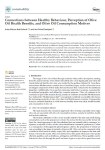
Article
Olive oil has been consumed since ancient times and appreciated as a source of nutritious fats and as medical remedy, in addition to being praised in ceremonies. Today, when health is one of the top priorities of humankind, we examined what cons[...]
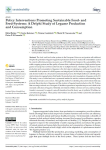
Article
The food- and feed-value systems in the European Union are not protein self-sufficient. Despite the potential of legume-supported production systems to reduce the externalities caused by current cultivation practices (excessive use of N fertiliz[...]
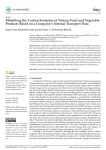
Article
Many organisations consider environmentally friendly activities, including the reduction of their carbon footprint, to be a significant aspect of their operation. In this study, a mathematical model was used to calculate the carbon footprint of [...]




